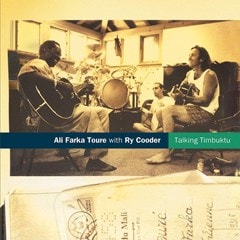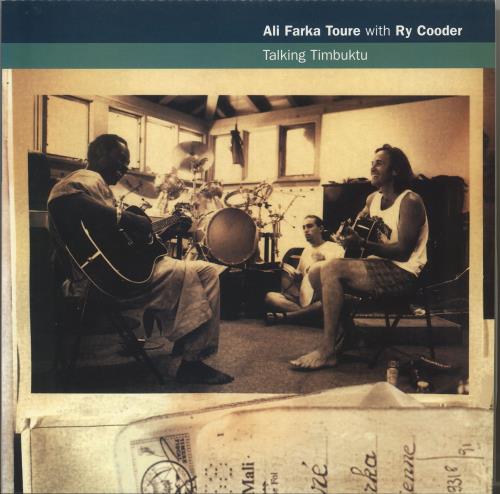

The follow-up track "Soukora" just shows how excellent Toure is at balancing feels and flow.

Apart from the electric guitar, Toure plays banjo here, and interestingly, Cooder plays and complements him with a Cümbüş, a Turkish fretless variant of a banjo (the word Cümbüş is also a synonym for chaos) on this beautiful opener. There is some serious mutual respect at work on this historic meeting evident right from the start with the opening "Bondo." The song's melodies swirl with emotion bolstered by call and response vocals that all together conjure so much: the streams of river Niger, the vastness of a desert sky and the force of a desert wind. Both artists are immediately recognizable musicians on that most overplayed of instruments, but to their advantage both of them are also bound by their obvious empathy.

On these 11 tracks, there is a kind of interplay and communication between these two artists that is rare in any kind of music.
Ali farka toure talking timbuktu rare full#
Recorded over a period of three days, Talking Timbuktu is full of sizzling examples that will surely curl the toes and will warm the hearts of guitar fanatics. After all, Africa is the spiritual homeland of the blues. That a guitarist of reputation and history such as Cooder's chose to play with Toure is not surprising. Cooder has carved a reputation of delving deep and exploring the vast legacies of American musical legacies, most notably the rustic strains of the blues. That was the moment when the desert blues got its worldwide exposure. And it was inevitable for him to meet the ever curious guitar adventurer and producer Ry Cooder. At the time, his music was wide spreading across Africa when cassettes were the chosen medium for the desert and were used as main distribution channels as much as these days cell phone memory cards are used in West Africa for distributing music. For years before the world came to know his music in the '80s, he merged the sounds and the rhythms of his native Mali with the sounds of the blues which inevitably drew comparisons with another great artist, the blues legend John Lee Hooker. Toure's music was the finest example of desert blues that was unconcerned with boundaries. It was him who singlehandedly introduced the world to this music and its cultures behind. The popularity of this movement and music can easily be pinpointed to the music of the great Malian artist Ali Farka Toure, a towering musical figure and cultural icon. The sound that forms the basis of their music, apart from the dominant sound of the guitars, shares the same yearning and pace as the American blues, and the sonorities of the strings resonate in a way that has already been heard on old blues recordings. Artists such as Tinariwen, Terakaft, Boubakar Traore, Tamikrest, Bombino, Habib Koite, Vieux Farka Toure, Amadou and Miriam, to name but a few, can be seen and heard touring the world, performing at prestigious world music festivals and producing brilliant and popular recordings. The bands and musicians that are part of this genre come from an area that is spread across Western Africa that stretches from Mali to Libya gathering people of various ethnic groups. These days the genre of desert blues boasts one of the most vibrant music movements around the world.


 0 kommentar(er)
0 kommentar(er)
